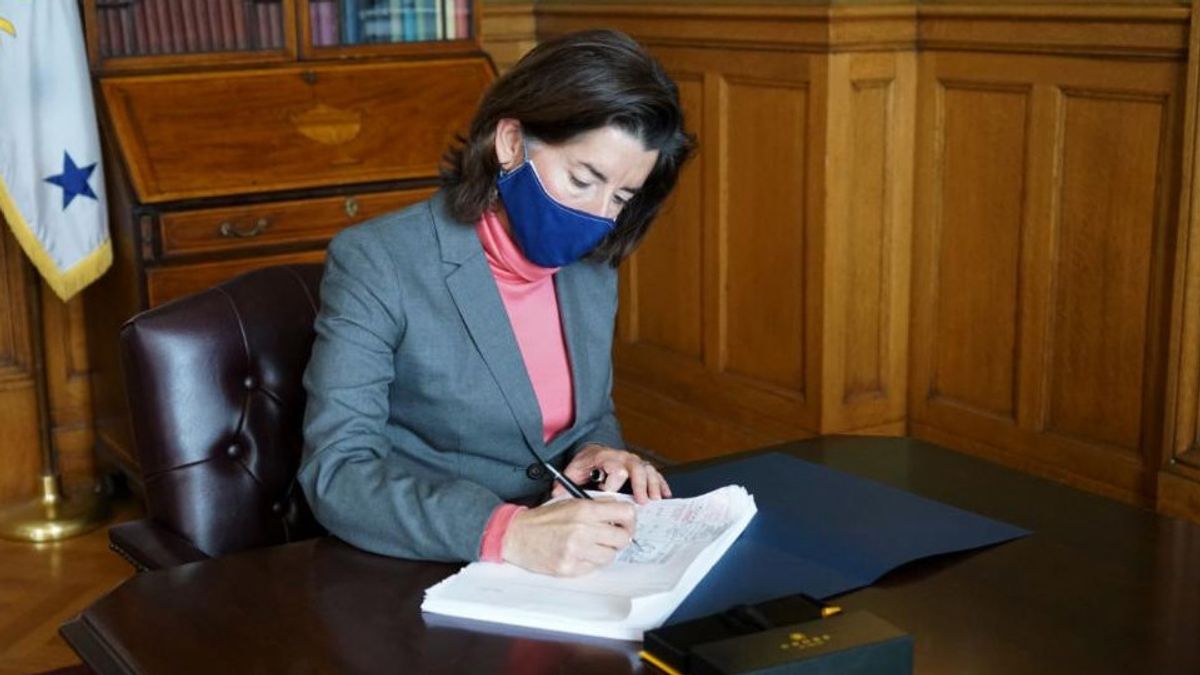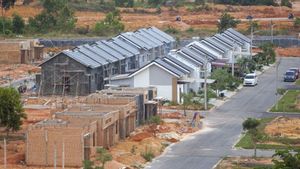JAKARTA - During the Senate confirmation session, the candidate for the United States (US) Minister of Trade Gina Raimondo stated that she would be very aggressive in fighting against unfair trade practices by China. But she declined to elaborate on how to deal with issues such as Chinese tech giant Huawei or the steel and aluminum tariffs that the Donald Trump administration has imposed.
Quoting the Washington Post, Wednesday, January 27, Gina Raimondo also promised to help the US economy recover from the COVID-19 pandemic by expanding broadband access to areas with uneven internet connections. This is part of its promotion in manufacturing and clean energy.
On the issue with China, Raimondo said the US needed to develop a "whole-of-government response," in coordination with US allies, to combat unfair trade practices.
US officials said the unfair measures included intellectual property theft by China, hefty state subsidies to industry, and attempts to block Western access to Chinese markets.
One of the most frequent actions the Trump administration takes to punish China is to blacklist Chinese companies. Those who are there are considered threatening US national security.
The Commerce Department oversees the list, which under Trump has grown to more than 300 Chinese entities, including telecommunications equipment manufacturer Huawei, major semiconductor and drone manufacturers, and companies involved in alleged human rights abuses against ethnic minorities in China's Xinjiang region.
Asked by Senator Ted Cruz whether companies accused of human rights abuses will remain on the blacklist, Raimondo said: China's actions are anti-competitive, harm American workers and businesses, are compelling, and, as you can point out, they are guilty of cruel human rights violation.
“Whether it's the Entity Register or tariffs or reverse duties, I intend to use all of these tools as much as possible to level the playing field for American workers. I believe in free trade but fair trade," she added.
Asked whether Huawei would remain on the blacklist, Raimondo said she would "review policy, consult industry, consult our allies and make judgments about what is best for America's national security and economic security."
The Trump administration added Huawei and its affiliates to the entity list in May 2019, hoping to undermine the company's ability to manufacture equipment for 5G mobile networks.
They then tightened the rules several times, most recently by banning chipmakers anywhere in the world from supplying Huawei if they used US manufacturing equipment or software.
Raimondo said she believed the Commerce Ministry was not only "playing defense" against China but also "playing around" by doing more to promote US technology, including by getting more involved with global organizations that set technology standards.
The Chinese government has taken an organized approach to promote its corporate standards, sparking calls for the US to do more.
During the confirmation hearing, Senator Roy Blunt complained about rising fees for producers in his state, including can and ship makers. Raimondo said the tariffs imposed on imports from China, the European Union, Canada, and other regions also affected producers in her country.
"Because of this, China has clearly behaved anti-competitive, dumping cheap steel and aluminum into America, which is hurting American workers and hurting our company's ability to compete," said Raimondo.
"So, if I am confirmed, I plan to be very aggressive in helping Americans compete against China's unfair practices," she added.
The English, Chinese, Japanese, Arabic, and French versions are automatically generated by the AI. So there may still be inaccuracies in translating, please always see Indonesian as our main language. (system supported by DigitalSiber.id)











